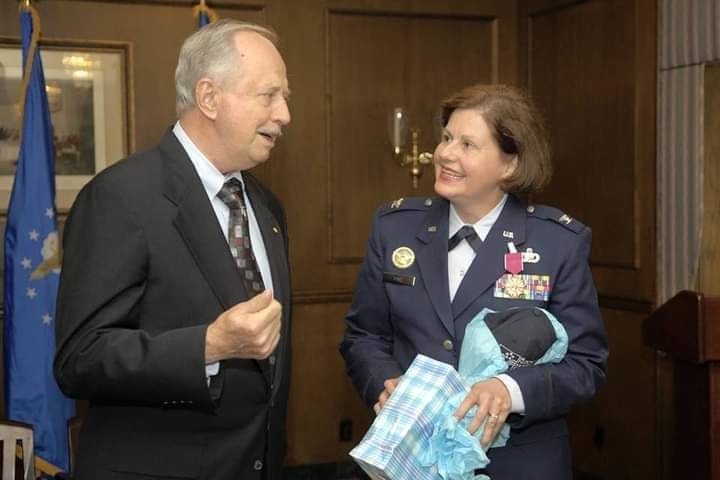AARP Hearing Center
In early November, a deeply divided United States once again faced an election with concerns about the country’s stability. Analysts warned that regardless of the outcome, nearly half of the nation would feel more than just disappointment—the threat of escalating tensions loomed, recalling the intense unrest that followed the events of early January 2020.

Throughout this fragile republic’s history, few periods have seen its citizens so polarized. The country had survived the Civil War, but the toll was severe, and the bitter struggles of the Civil Rights Era still leave many feeling that the progress made was only partial. In the days leading up to this election, tensions were high, stoked by increasingly extreme rhetoric. Podcasts and media outlets labeled opposing viewpoints as “evil,” dividing communities further.
Against this backdrop, AARP Virginia spotlighted veterans' issues this November, featuring a powerful webinar with Col. Donna Fore, a 30-year U.S. Air Force veteran. A survivor of the 9/11 Pentagon attack, Fore shared her memories, reminding listeners of the broader unifying impact of that day—an often-overlooked facet beyond the tragic loss at the World Trade Center. In total, 2,977 people, not counting the 19 hijackers, died in the September 11 attacks, including 125 lives lost at the Pentagon.
Each year, ceremonies commemorate those who perished, yet little is said about the survivors. Fore’s story served as a stark reminder of the long-lasting impact on those who lived through the attacks.
When the planes struck the Twin Towers, approximately 17,400 people were inside, with 2,606 lives lost. Remarkably, nearly 15,000 survived, including 18 people who escaped from above the impact zone in the South Tower.
Survivors like Fore still bear the scars. An intelligence officer at the time, she recalled each event in exact detail. On that fateful morning, Fore was summoned to her boss’s office. She remembered thinking, “Oh dear! It's never a good day when a general wants to see you. I must be in trouble, or something's going wrong.” When she arrived, the general wasn’t there, but his aide was watching TV, showing the first attack on New York. Minutes later, they saw the second plane hit, and Fore understood that something monumental was unfolding.
At 9:37 a.m., American Airlines Flight 77 struck the Pentagon. Her initial thought was, “Earthquake,” a logical reaction given her recent stint in Japan. Confused, she initially thought the attacks were confined to New York. The next day, civilians were ordered to stay home, but military personnel, like Fore, were called back to duty. On her way into the building, she passed body bags of those who had died, a haunting image she has never forgotten.
The webinar attendees were deeply moved. Kim von Hedemann, one participant, shared her response, saying, “I’ve never thought about what individual (survivors) must have gone through.” Several times, Fore had to pause to collect herself, visibly affected by the memories. “I teared up every time you did,” von Hedemann said.
Reflecting on the unity Americans felt in the wake of the attacks, Robyn Dalton closed the session with a reminder: “Let’s remember we are one nation and be kind to one another.” It’s a message many hope will guide the country through these divisive times.































































